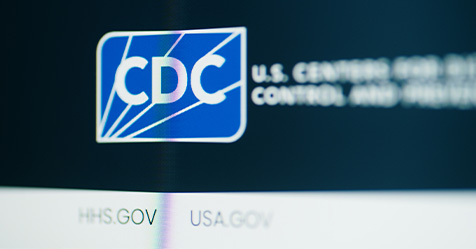Person in the U.S. Found to Have H1N1 Virus
The risk assessment for the United States remains low.
According to the U.S. Centers for Disease Control and Prevention (CDC), a person in the United States has tested positive for avian influenza (HPAI) A(H5N1) virus (commonly known as H5N1 bird flu), as reported by Texas and confirmed by the CDC.
Symptoms of H5N1 bird flu range from mild (eye infection and upper respiratory symptoms) to severe (pneumonia), which has resulted in death in other countries. The person, exposed to the highly pathogenic virus via infected dairy cattle in Texas, reported only one symptom of the disease, that being eye redness (consistent with conjunctivitis). The individual is receiving an antiviral drug as treatment and is recovering.
This is the second person reported to have tested positive for H5N1 bird flu in the United States. In 2022, a previous human case was reported in Colorado. According to the CDC, human infections with avian influenza A viruses, including H5N1, are uncommon but have occurred sporadically worldwide. The CDC has been monitoring for illness among people exposed to H5 virus-infected birds since outbreaks were first detected in U.S. wild birds and poultry in late 2021.
Despite this case, the CDC maintains that H5N1 bird flu human health risk assessment remains low for the U.S. general public. However, people with close or prolonged, unprotected exposures to infected birds or other animals (including livestock) or to contaminated environments are at a greater risk of infection. Seasonal flu vaccines do not provide protection against avian influenza A viruses.
To avoid infection, the CDC recommends avoiding unprotected exposures to sick or dead animals including wild birds, poultry, other domesticated birds, and other wild or domesticated animals (including cattle), as well as with animal carcasses, raw milk, feces, litter, or materials contaminated by birds or other animals with confirmed or suspected HPAI A(H5N1)-virus infection. People should not prepare or eat uncooked or undercooked food or related uncooked food products, such as unpasteurized (raw) milk, or products made from raw milk such as cheeses, from animals with confirmed or suspected HPAI A(H5N1)-virus infection (avian influenza or bird flu).
People exposed to birds or other animals with confirmed or suspected HPAI A(H5N1) virus infection should be monitored for any signs of illness for 10 days after the last known exposure. This includes individuals who were wearing recommended personal protective equipment (PPE) at the time of the exposure.
The CDC states that it is working closely with state and federal agencies, including USDA, the Food and Drug Administration (FDA), and local health authorities to further investigate and monitor this situation.


